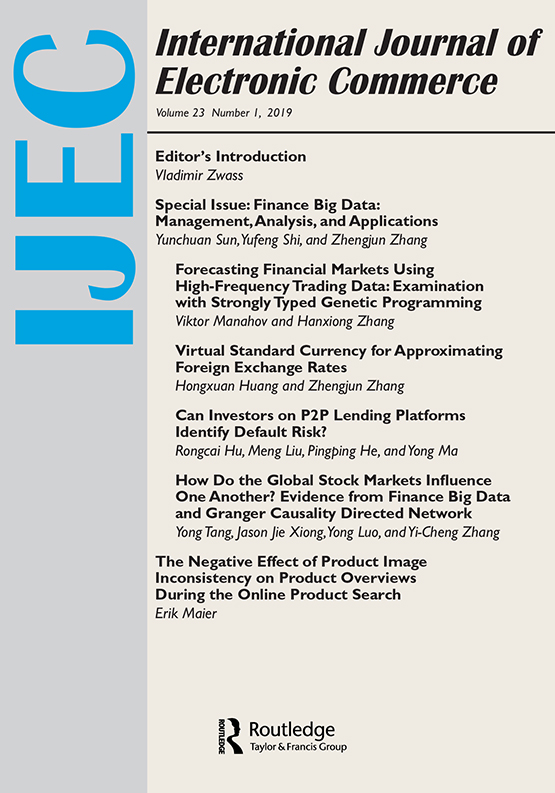为什么人们会发起网络风暴?悲伤、愤怒和厌恶的作用
IF 3.8
3区 管理学
Q2 BUSINESS
International Journal of Electronic Commerce
Pub Date : 2021-07-03
DOI:10.1080/10864415.2021.1943173
引用次数: 10
摘要
品牌已经成为网络消费者通过分享负面品牌内容进行在线协同攻击的目标,导致了所谓的在线火风暴(of)。它对声誉、销售和股票市场表现的不利影响使得对of emergence的理解成为管理层的优先事项,也是学术研究的一个有趣领域。我们在分析中采用了一种新颖的视角,利用情绪评价理论来挖掘现象的情感本质。具体来说,我们的研究分析了三种特定的负面品牌情绪(悲伤、厌恶和愤怒)在一个模型中的作用,该模型包含了发起of的认知、情感和动机驱动因素。研究人员对303名经历过品牌不当行为事件的人进行了抽样调查,结果表明,在与事件相关的愤怒评价中,人们会公开表达愤怒、厌恶和悲伤的情绪。然而,只有愤怒和厌恶提供了以of的形式对品牌进行报复的动力。这些发现有助于更好地理解这一现象,因为情绪作为解释启动of行为的基础的作用一直被忽视。对于从业者,我们提供了一些指导方针来监控和管理个人发布的负面情绪内容,以减轻这些内容,减少报复的欲望,这是他们培养OF的意图背后的力量。本文章由计算机程序翻译,如有差异,请以英文原文为准。
Why Do People Initiate an Online Firestorm? The Role of Sadness, Anger, and Dislike
ABSTRACT Brands have become the target of online collaborative attacks performed by networked consumers who share negative brand content, leading to the so-called online firestorms (OF). Its detrimental effects on reputation, sales, and stock market performance make the understanding of OF emergence a managerial priority as well as an interesting area for academic research. We adopt a novel perspective in the analysis by drawing on the appraisal theory of emotions to dig in the emotional nature of the phenomena. Specifically, our research analyzes the role of three specific negative brand emotions (sadness, dislike, and anger) in a model that encapsulates cognitive, emotional, and motivational drivers of the initiation of an OF. The findings obtained from a sample of 303 individuals exposed to a brand misconduct episode suggest that openly expressed feelings of anger, dislike, and sadness emerge in response to outrage appraisals associated to the episode. However, only anger and dislike provided the impetus for taking revenge on the brand in the form of an OF. These findings contribute to a better understanding of the phenomenon since the role of emotions as a basis for explaining the act of initiating an OF has been overlooked. To practitioners, we offer some guidelines to monitor and manage the negative emotional content posted by individuals as mitigating them reduces the desire for revenge, which is the force behind their intentions to foster an OF.
求助全文
通过发布文献求助,成功后即可免费获取论文全文。
去求助
来源期刊

International Journal of Electronic Commerce
工程技术-计算机:软件工程
CiteScore
7.20
自引率
16.00%
发文量
18
审稿时长
>12 weeks
期刊介绍:
The International Journal of Electronic Commerce is the leading refereed quarterly devoted to advancing the understanding and practice of electronic commerce. It serves the needs of researchers as well as practitioners and executives involved in electronic commerce. The Journal aims to offer an integrated view of the field by presenting approaches of multiple disciplines.
Electronic commerce is the sharing of business information, maintaining business relationships, and conducting business transactions by digital means over telecommunications networks. The Journal accepts empirical and interpretive submissions that make a significant novel contribution to this field.
 求助内容:
求助内容: 应助结果提醒方式:
应助结果提醒方式:


